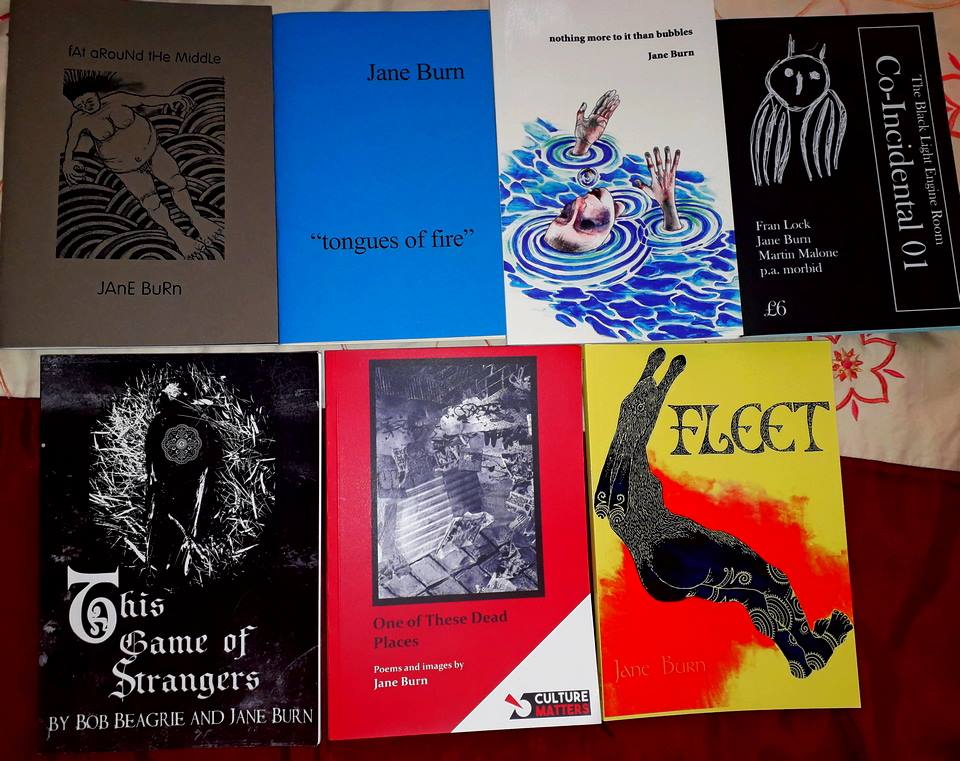
JANE BURN – POETRY AS HARD GRAFT, INSPIRATION, REACTION OR EXPERIMENT?
I interviewed poet & artist Jane Burn who won the Michael Marks Environmental Poet of the Year 2023-24 with A Thousand Miles from the Sea.
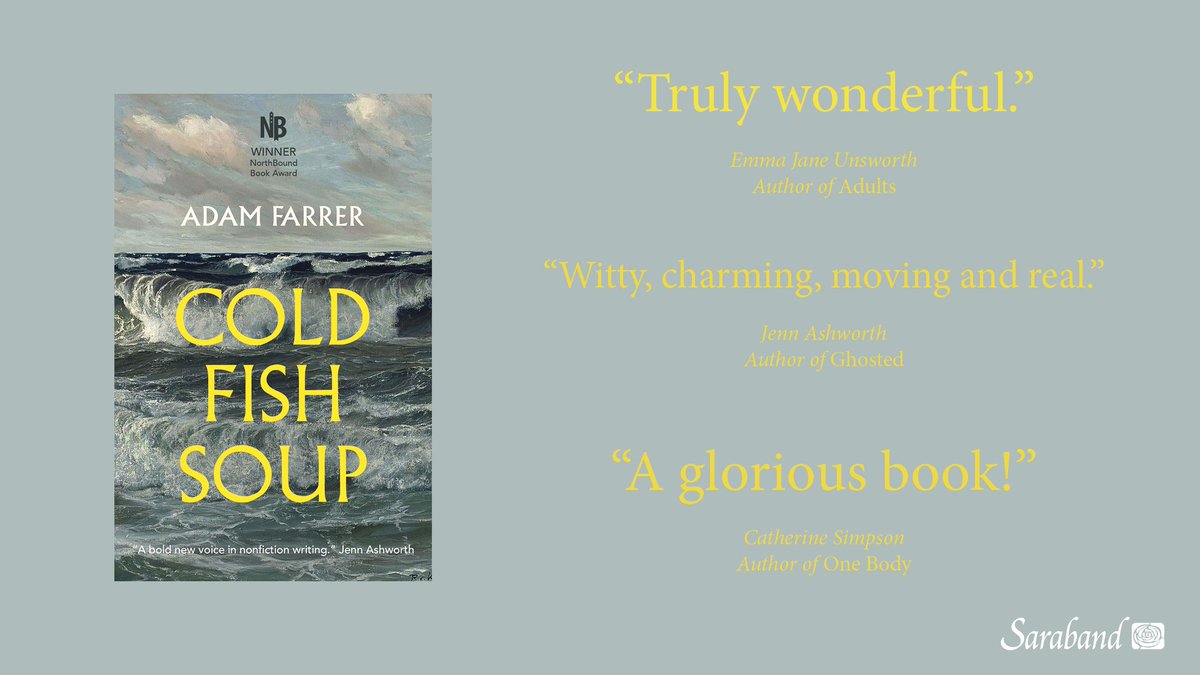
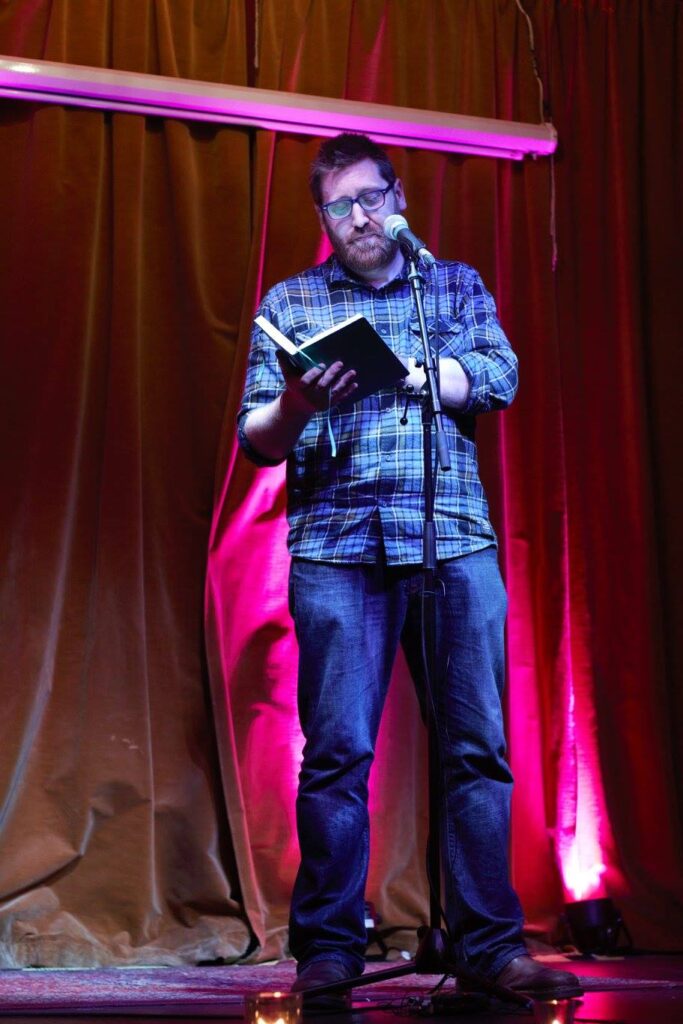
In the second part of my interview with Adam Farrer, I asked him about his creative upbringing, being a working class author and performer, and how he achieves humour in his writing.
Adam has performed his work at the Edinburgh International Book Festival, Sheffield Doc/Fest, Rochdale Literature and Ideas Festival, the Ilkley Literature Festival, and the Manchester Literature Festival. He has run workshops on creative nonfiction writing for The University of Salford’s Festival of Research, the Northern Light Writers Conference, the Prestwich Arts Festival, Victoria Baths Weekend of Words, and the Greater Manchester Fringe Development Conference.
He is editor of the creative nonfiction journal The Real Story and won the NorthBound Book Award for his memoir-in-essays Cold Fish Soup.
Leslie: Can you describe how your upbringing led onto your writing/performing today? What have been your seminal moments with family and what have you learned from them?
Adam: My upbringing is impossible to pick apart from my creative work, although it took me a long time to fully register this and acknowledge how much my family, and in particular my mother, influenced me and my work. My mother is a born entertainer, and completely fearless. I can’t think of a time when she wasn’t in rehearsal for something, readying herself for appearances in plays, pantomimes or choir performances. Even off stage, there is something compelling and crowd-pleasing about her. She has the ability to keep people captivated with long, funny anecdotes, full of pleasing digressions and striking punchlines. This has long been something I admired about her but because I’ve always been quite shy and wary of public humiliation, I grew up to think of us as very different people. Especially when, at the age of 65, she began working as a semi-professional burlesque dancer, something she is still doing today, aged 73. I decided that I must be more like my quiet and lowkey father, and simply admired my mother for her boldness and lack of fear.
It wasn’t until I started writing Cold Fish Soup and discussing my own cautious efforts to make it onto the stage, first as a musician and later as a spoken word performer that I realised how similar we are. My mother and I bonded over our shared experiences of performing, and what we get out of it. We both enjoy the response of an audience and are happy to expose ourselves in pursuit of this; me through the telling of personal and exposing stories, and her through a more literal, physical exposure. It’s clear to me that my mother’s longing for the spotlight is something that lives within me too, and is present every time I climb on stage to tell a story. I will never be as fearless as my mother, but most people who meet her tell me “Ah, that’s where you get it from,” I actually ended up writing about this for The Guardian last year.
Leslie: Can you expand on the background and meaning to your phrase: ‘Smashing middle-class norms in nature writing’?
Adam: ‘Smashing middle-class norms in nature writing’ is actually a phrase coined by the writer Natasha Carthew, founder of The Working Class Writers Festival. It was the basis of an event she organised at the Ilkley Literature Festival in 2022, opening up a discussion about a lack of working-class voices in nature writing. Nature writing, like all literary forms really, is dominated by writers with financial privilege. This is not a criticism of those writers; I have no issue with people who have the good fortune of financial resources that allow them time to write and research (I wish we all had that kind of freedom) but their privileged position gifts them a luxury of time and resources not available to people whose lives are dominated by other financial commitments. What this means is that working class voices, the ones very often at the sharp end of nature and environmental issues, don’t get heard as often, leading to limited conversations in nature writing.
Natasha is doing a lot of work to raise the profile of working-class writers across all forms, which is especially pressing at a time when writers salaries are averaging £7k pa, a 33% drop from the average in 2018. When writing becomes a luxury and the reserve of a privileged few, this will dictate and restrict the stories we read. I don’t think that’s good for anyone, not least the reader. I was only able to get the time and support I required to write Cold Fish Soup, which focusses on life along the crumbling, dilapidated East Yorkshire coast, thanks to a Developing Your Creative Practice grant from Arts Council England. I was very much writing from the directly affected sharp end of nature in that book, and without the money – and by association the privilege – of financial support, that book may not exist.
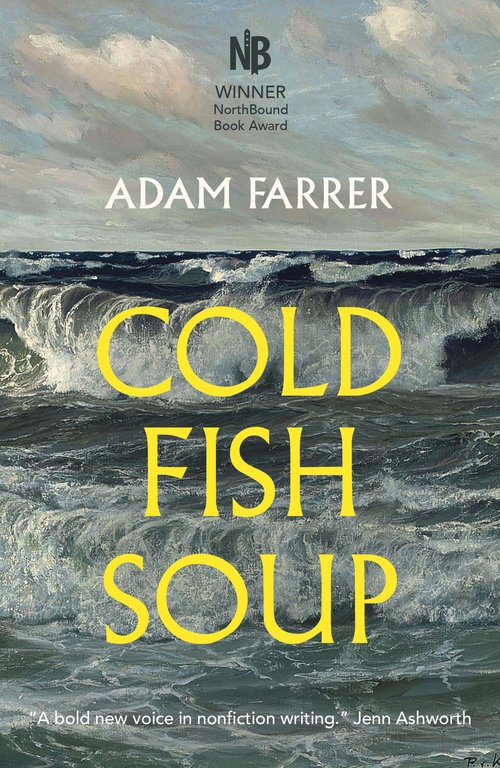
Leslie: What’s the secret of achieving humour in writing?
Adam: I’m not sure I can claim to know the secret to humour writing, but I do know what works for me. My readers tend to respond to a mix of things. Brutal honesty, universal truths, self-effacing moments (don’t make yourself the hero of your own story, no one wants to read that), the rhythm of words, a turn of phrase, juxtaposition with dark subject matter, pacey and believable dialogue, crass descriptions. So much of making these elements work is down to balance and their context.
Personally, I find the way people speak to one another to be incredibly funny. I’m from a big family where no one ever shuts up, and this seem to have helped me develop an ear for comedic dialogue. Obviously, writing from life means that my dialogue involves a lot of listening closely and paying attention to conversations, which could be seen as simply harvesting other people’s words. But it’s not just about hearing something funny and writing it down. You need to understand when a conversation or phrase works comedically and suits your story, or if it can be framed in a context that makes it funny.
Touching on spoken word again, I work out a lot of the humour sections of my work in front of audiences, I guess in the same way that stand-up comedians do with in-progress shows. I might think a line is funny on the page, but an audience will often put me right. There was a particular line that I wanted to include in Cold Fish Soup and was convinced that it was sharp and witty, but I tried it out in front of three audiences and none of them responded in the way I’d hoped, so I opted to leave it out of my manuscript. Looking at that line now, the audiences were completely right, and I’m embarrassed I had the nerve to show it to anyone, let alone stand under a spotlight and read it out loud. It’s important to be careful though, as what works in a live setting doesn’t always work in print. In front of an audience, especially somewhere with access to alcohol, something crude can go over incredibly well but once you write it down, robbed of that live energy, it can come across as juvenile or puerile. But like I said, there is that balance and you only really get a feel for it over time.
Next week I interview Rose Lennard about Ephemeral Art and our connection to nature.
ABOUT LESLIE TATE’S BOOKS:

I interviewed poet & artist Jane Burn who won the Michael Marks Environmental Poet of the Year 2023-24 with A Thousand Miles from the Sea.
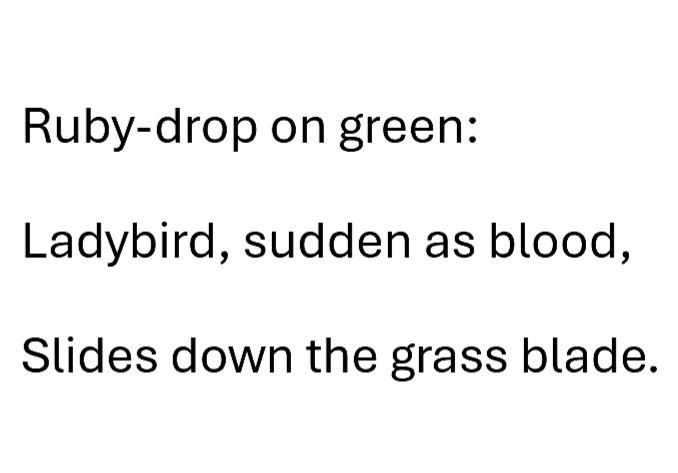
I interviewed ex-broadcaster and poet Polly Oliver about oral and visual poetry, her compositional methods, and learning the Welsh language. Polly says, “I absolutely love
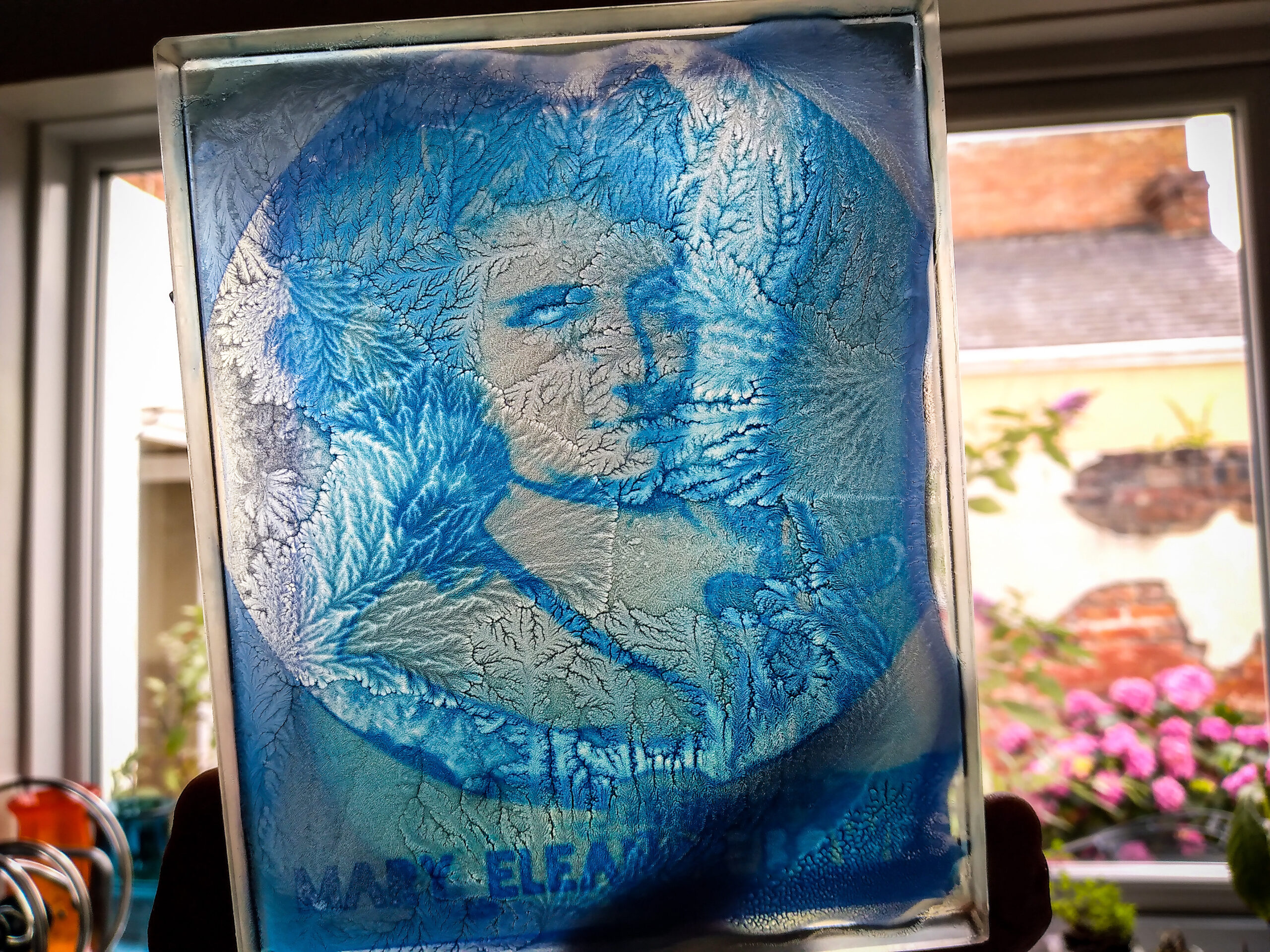
I interviewed Jo Howell who says about herself: “I’ve been a professional photographic artist since I left Uni in 2009. I am a cyanotype specialist.
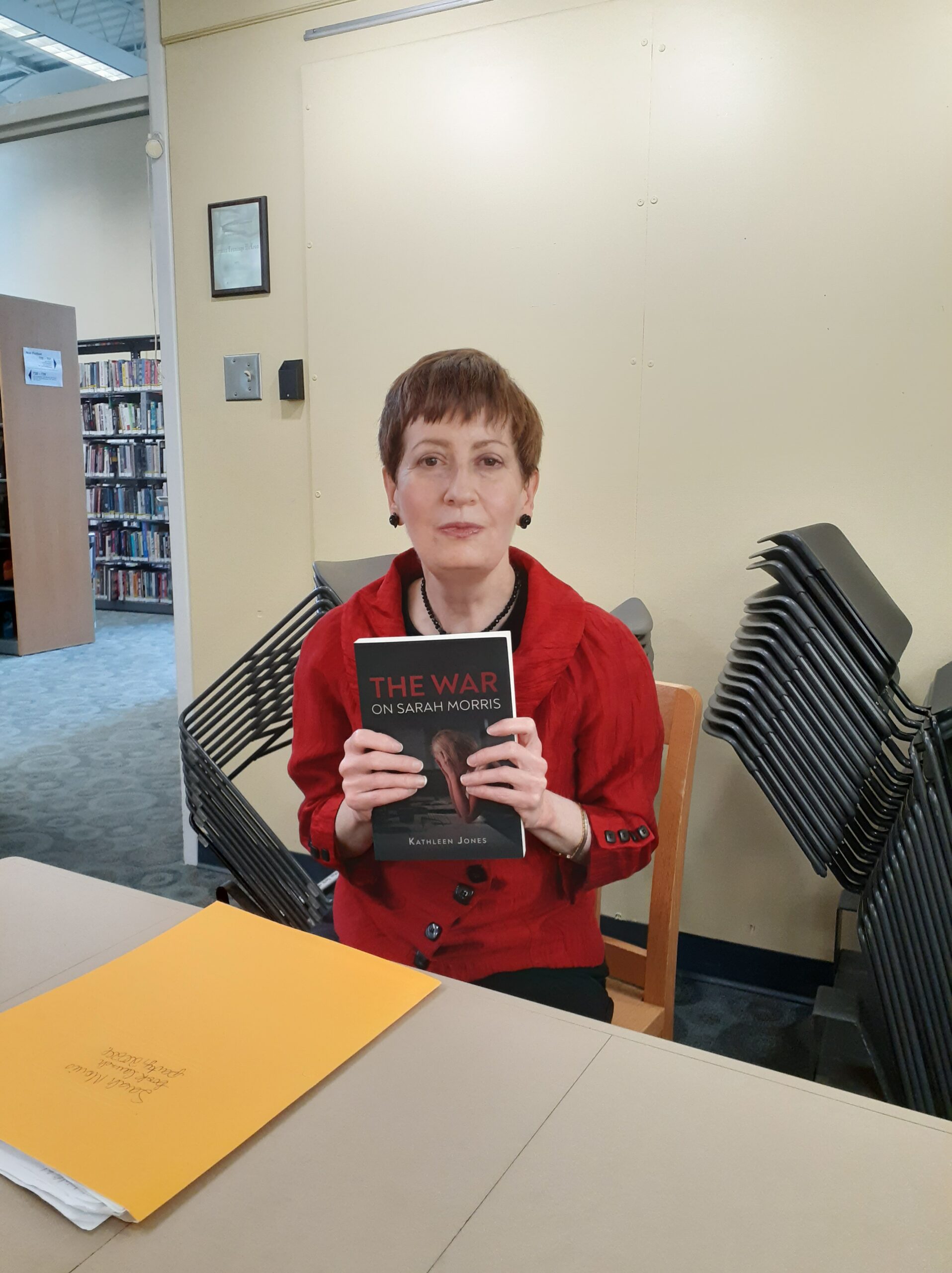
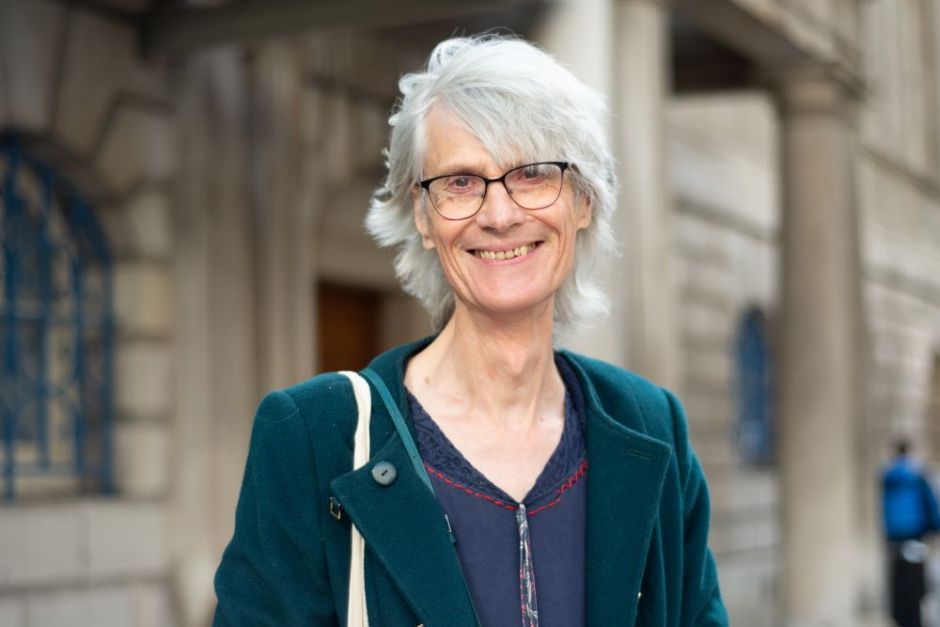
Poet Tracey Rhys, writer of Teaching a Bird to Sing and winner of the Poetry Archive’s video competition reviews Ways To Be Equally Human. Tracey,
| Cookie | Duration | Description |
|---|---|---|
| cookielawinfo-checkbox-analytics | 11 months | This cookie is set by GDPR Cookie Consent plugin. The cookie is used to store the user consent for the cookies in the category "Analytics". |
| cookielawinfo-checkbox-functional | 11 months | The cookie is set by GDPR cookie consent to record the user consent for the cookies in the category "Functional". |
| cookielawinfo-checkbox-necessary | 11 months | This cookie is set by GDPR Cookie Consent plugin. The cookies is used to store the user consent for the cookies in the category "Necessary". |
| cookielawinfo-checkbox-others | 11 months | This cookie is set by GDPR Cookie Consent plugin. The cookie is used to store the user consent for the cookies in the category "Other. |
| cookielawinfo-checkbox-performance | 11 months | This cookie is set by GDPR Cookie Consent plugin. The cookie is used to store the user consent for the cookies in the category "Performance". |
| viewed_cookie_policy | 11 months | The cookie is set by the GDPR Cookie Consent plugin and is used to store whether or not user has consented to the use of cookies. It does not store any personal data. |